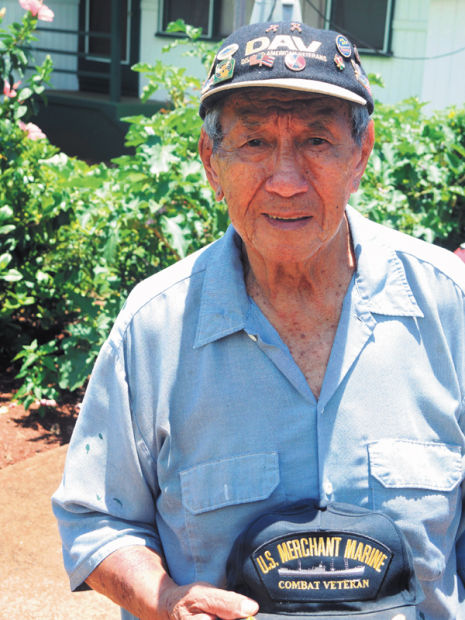KAPAA — Valentine Ako lived a privileged childhood on the Big Island in the 1920s. When former Gov. Samuel Wilder King, the 11th governor of Hawaii, visited the island, the politician would stay at the Ako family’s two-story, 10-bedroom mansion.
KAPAA — Valentine Ako lived a privileged childhood on the Big Island in the 1920s.
When former Gov. Samuel Wilder King, the 11th governor of Hawaii, visited the island, the politician would stay at the Ako family’s two-story, 10-bedroom mansion.
“It was fully furnished with electricity and indoor plumbing,” Ako said. “We had two 30,000-gallon redwood water tanks with an extra spigot for the neighbors to use when the droughts would come, sometimes lasting as long as seven months.”
But Ako preferred the simpler lifestyle at his grandparent’s home.
“My childhood friends didn’t have luxuries,” Ako remembered. “We had maids and yard boys. That’s how lucky we were.”
But at his grandparent’s home he learned, “Don’t fib. Don’t lie. Care for one another.”
“They told me they loved me,” Ako said. “I yearned for that from my mom and dad but never got it. It wasn’t proper. They were all about business.”
In 1943, Ako joined the Merchant Marines.
“In nine years, I worked my way up to captain,” Ako remembered.
He learned the ropes from nine other captains, five of whom were foreigners from Holland, Germany, Norway, Australia and Canada.
“Every one of them was a divorced,” Ako said. “They used to say, ‘You’re king on a ship, nothing on shore.’”
Beyond insight about marriage and life on the sea, Ako learned about human nature.
“When we’d put together a crew, we’d have criminals, husbands escaping from their wives, dope addicts,” Ako said. “I became responsible for all of them and I wanted to be a good example to them.”
He learned to navigate the seas by celestial navigation. The stars guided him and to this day he doesn’t need GPS, he can still find his way by observing the skies.
When the Korean War broke out, he was drafted.
“I considered dodging the draft, and was going to instead sail on a Panama ship, but when I saw that the conditions weren’t like what were on the American ships, I changed my mind,” he said.
After a quick six weeks of training, he was deployed to the front lines on the eastern side of North Korea. The assignment took its toll on the Hawaii native.
“Artillery shell exploded on top of me and shattered my eardrum. I also suffered from frost bite,” Ako said. “I lost four buddies next to me in one battle. I leaned against an old tree to avoid getting hit. If the shrapnel had hit me, I wouldn’t be here today.”
But post-traumatic stress has had a lifelong impact on Ako.
“I watched a Hawaiian boy pull out an M1 and put it to his throat. He blew his head off in front of me. He was burdened and tired of killing,” Ako said. “I saw it happen many times.”
In 1953, Ako came home to Hawaii. It was a woman he met at The Willows nightclub in Honolulu that altered his future.
“There were times when I wanted to get rid of my life, but that changed when I met her,” Ako remembered.
They married one year later and had five children. But life wasn’t always easy.
“I tried to choke her in my sleep,” Ako said when referring to an unintentional action caused by post-traumatic stress syndrome. But he got therapy and turned his mind to religion.
“I became a Christian and studied the Bible,” Ako said.
He also got busy in the construction field where he worked for 30 years building various properties including Coco Palms, Kauai Surf, Waiohai and numerous others.
One of his workers bumped into him outside Walmart recently. Ako didn’t readily recognize the guy and asked him, “Was I a bad guy?”
The man responded, “No, you were a good one.”
• Lisa Ann Capozzi, features and education reporter can be reached at lcapozzi@thegardenisland.com.


